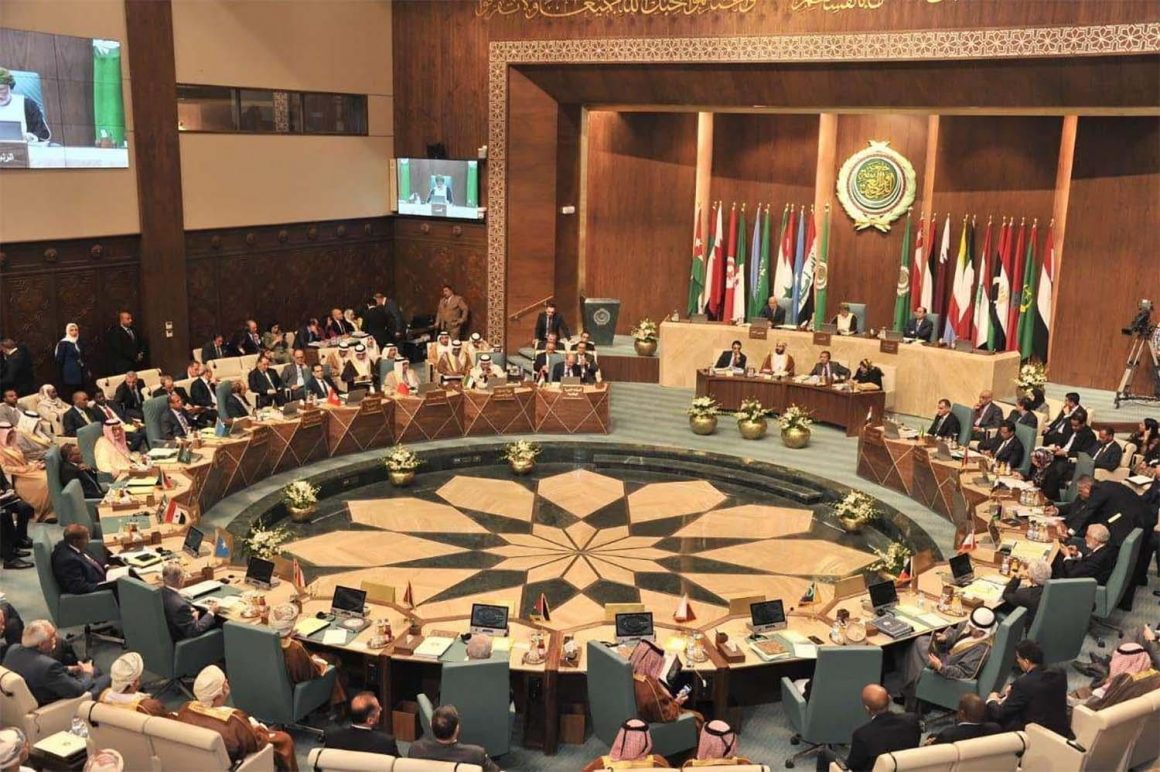Leading up to last year’s summit, Algeria attempted to reinstate the Syrian regime’s membership to the Arab League following its suspension in 2011.
Saudi Arabia is hosting the next Arab League Summit on 19 May following major regional shifts, from the Saudi Arabia and Iran reconciliation to increased engagements by member states with Syria’s Bashar Al Assad regime.
In a statement on Sunday, the bloc announced the date of the upcoming summit, with a number of preparatory meetings scheduled to take place ahead of the event.
The statement added that this year is set to witness an Arab development summit in Mauritania, as well as the Arab-African summit in Saudi Arabia.
Last year’s Arab League Summit took place at the level of leaders and diplomats in Algeria, being the entity’s first meeting on such level in three years.
Qatar’s Amir Sheikh Tamim bin Hamad Al Thani was the only leader from the Gulf to attend the regional meeting, which was described as ‘the summit of unification’ by Algeria’s President Abdelmadjid Tebboune.
The meeting’s agenda touched on the Palestinian cause, the impact the war between Russia and Ukraine had on the region, as well as Qatar’s hosting of the 2022 FIFA World Cup.
The bloc has not yet mentioned the agenda of the upcoming meeting, which comes at a critical time amid major regional developments, at the top of which is the Saudi Arabia and Iran reconciliation.
Riyadh had severed ties with Tehran in 2016 after the storming of the Saudi embassy in Iran, following the execution of Shiite cleric Nimr Al-Nimr.
Analysts who spoke to Doha News last week noted that while the Saudi Arabia and Iran rapprochement is a significant step, its impact on regional files, namely Yemen, remains too soon to be judged.
The Assad regime’s return
Leading up to last year’s summit, Algeria attempted to reinstate the Syrian regime’s membership to the Arab League following its suspension in 2011.
Algeria’s attempts at the time appeared to be blocked by the collective stance of regional countries who refused to reinstate the Assad regime, namely, Qatar, Saudi Arabia and Egypt.
However, recent months have witnessed what appears to be an altered stance vis-a-vis the Syrian regime, with Egypt and Saudi Arabia both warming to Assad.
Last month, Egyptian Foreign Minister Sameh Shoukry visited Damascus in the first high-level trip by an envoy from Cairo since 2011.
Egyptian President Abdel Fattah El-Sisi also held his first phone call with Assad following the 6 February earthquakes, widely believed to be a factor that broke Syria’s isolation.
Recent reports have also pointed to talks between Saudi Arabia and Syria over the return of their embassies in both countries, suggesting a possible return of ties.
Other countries in the region that had resumed ties with the Assad regime over the past years include Jordan and the United Arab Emirates.
Amman has been leading the “Jordan Initiative” in a bid to find a political solution for the ongoing Syrian crisis.
On the other hand, Qatar has maintained its rejection of Assad’s crimes against civilians while refusing to normalise with the regime.
On Thursday, Qatar’s foreign ministry spokesperson Dr. Majed Al Ansari said that the Gulf state supports all initiatives aimed at finding peace in Syria and supports all Arab efforts.
Dr. Al Ansari added that “Qatar’s stance on the Syrian crisis is crystal clear, yet it is driven by two factors.”
“First, the Syrian regime does what satisfies the aspirations of the Syrian people, and the second is the Arab consensus regarding those moves,” a statement by Qatar’s foreign ministry read at the time.
In September last year, Sheikh Tamim told French outlet Le Point that the reasons that led to the suspension of Syria’s Arab League membership in the first place remain as issues more than a decade later.
“Why do we accept that a leader massacres his people and expels millions of refugees from his country? As human beings, is this acceptable? What’s more, when we know that these refugees are going to come to us and that this will create problems?” Sheikh Tamim said at the time.
